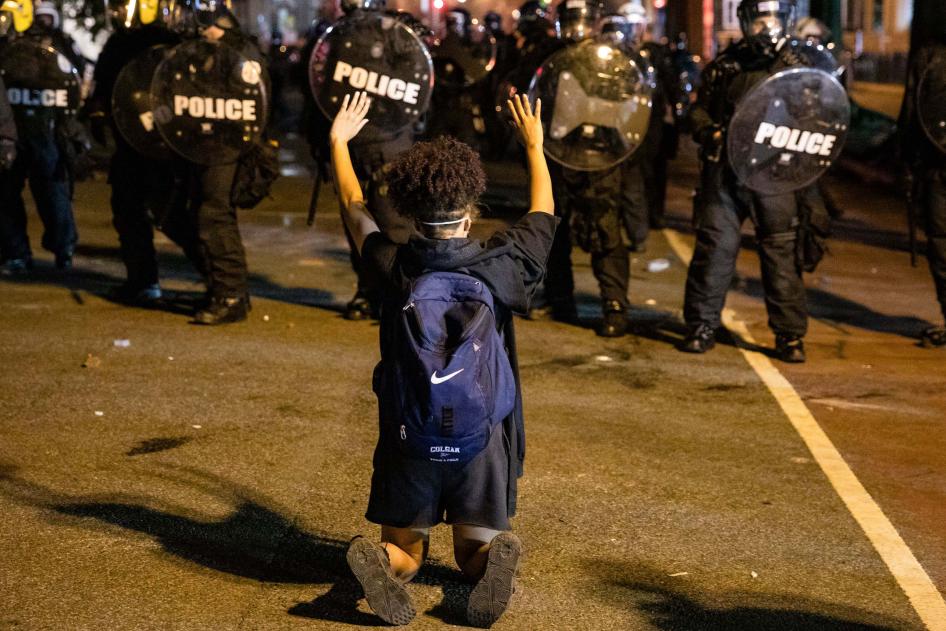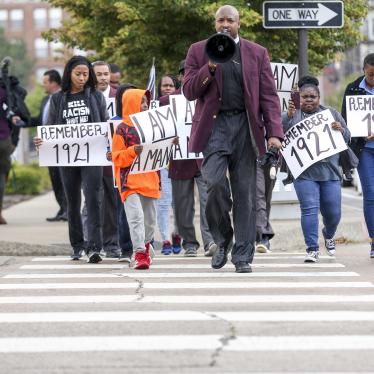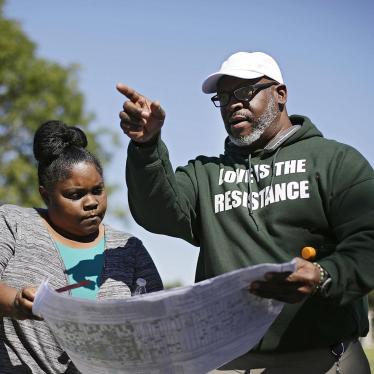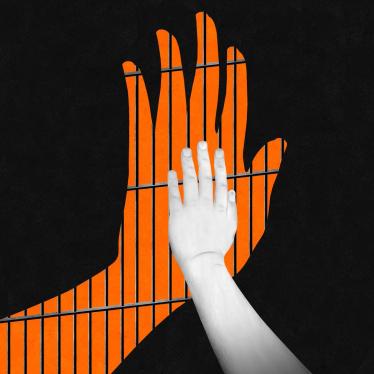(Washington, DC) – Officials across the United States should commemorate Juneteenth, a day honoring the declaration abolishing slavery, by considering and supporting laws and policies to address structural and other forms of racism in the US, Human Rights Watch said today. If US President Donald Trump is serious about addressing police misconduct and ensuring justice for all people, as his recent executive order on policing states, he should use his June 20 rally in Tulsa to lay out concrete steps to bring about structural changes to policing and address systemic racism in the US.
As mass demonstrations continue across the country, spurred by police killings of George Floyd, Breonna Taylor, and many other Black people, officials should recognize that many of the racial inequalities and disparities driving the protests stem from the US failure to adequately account for and address the harm caused by slavery and its enduring impact.
“Black people were enslaved and exploited, and continue to be marginalized and disregarded today,” said Nicole Austin-Hillery, US program director at Human Rights Watch. “If the US does not finally address the accumulated effects of historical and present harm for Black people, it risks continuing to carry slavery’s legacy forward, causing new harm indefinitely into the future.”
Juneteenth celebrates the emancipation of the last large population of enslaved Black people in Galveston, Texas, who were informed they were free on June 19, 1865.
Though enslaved people were declared free by the 1863 Emancipation Proclamation, many US cities and states put in place laws and policies that legalized racial segregation and stripped Black people of their rights. According to the Equal Justice Initiative, nearly 6,500 Black people were killed in terror lynchings between 1865 and 1950. Federal, state, and local policy decisions in the 20th and 21st centuries further contributed to the structural racism with economic, education, and health inequalities; housing segregation; and discriminatory policing that still exist today.
In Tulsa, Oklahoma, for example, authorities have failed to adequately address continuing harm stemming from what is now known as the “Tulsa Race Massacre.” In the span of about 24 hours between May 31 and June 1, 1921, a white mob, some of whom had been deputized and armed by city officials, descended on Greenwood, a successful Black economic hub in Tulsa then known as “Black Wall Street.” The mob burned Greenwood to the ground, killing an estimated 300 people, most of them Black.
Thirty-five square blocks, an estimated 1,200 Black-owned houses, scores of businesses, a school, a hospital, a public library, and a dozen Black churches were destroyed. Neither the authorities nor insurance companies compensated any Black people for their losses, authorities placed obstacles in the way of Black people rebuilding, and no one was prosecuted for the violence. Subsequent federal, state, and local laws and policies, like redlining and urban renewal, along with policing policies and practices, reinforced racial segregation in the area.
In 2019, Human Rights Watch documented how policing affects people in Tulsa today, particularly in the segregated and largely impoverished North Tulsa area. Human Rights Watch found that Black people are subjected to physical force, including tasers, police dog bites, pepper spray, punches, and kicks, at a rate 2.7 times that of white people. Some neighborhoods with larger populations of Black people and poor people experience police stops at more than 10 times the rate of predominantly white and wealthier neighborhoods. Arrests and citations lead to staggering accumulations of court fees, fines, and costs, often for very minor offenses, that trap poor people in a cycle of debt and further arrests for failing to pay.
US President Donald Trump’s planned political rally on the heels of Juneteenth in Tulsa should not distract state and local policymakers from addressing Oklahoma’s entrenched racial disparities in policing and other systems, Human Rights Watch said. Officials in Tulsa and throughout the country should vastly reduce their reliance on police to solve societal problems stemming from problematic substance use, homelessness, mental health issues, and poverty. Instead of criminalizing people in need, officials and lawmakers should invest in initiatives that directly address the underlying problems, including through housing, affordable and accessible health care, economic development, and education.
As recommended in a recent Human Rights Watch report, the Tulsa and Oklahoma governments should also act swiftly to provide reparations for the Tulsa Race Massacre, including by providing direct payments to the few massacre victims still living, 2 of whom are ages 105 and 106, and their descendants, and recover and identify remains that may be in mass graves.
The state and local governments should also promptly establish a comprehensive reparations plan in close consultation with the impacted community, which could include measures such as providing targeted investments in health, education, and economic opportunities, strengthening existing scholarship programs, and funding memorials. Federal, state, and local authorities should also pass legislation to clear legal barriers to civil claims related to the massacre.
In Tulsa and other parts of the country, racial disparities in satisfying the right to health are stark. Black Americans are significantly more likely to die of HIV, cancer, asthma, stroke, heart disease, diabetes, obesity, and maternal mortality than white Americans, and are more likely than whites to live below the US poverty level and therefore not to have health insurance. Studies show a correlation between high rates of racial segregation and poor health outcomes in the US, now evident in the Covid-19 crisis.
US economic inequality is closely linked to a racial divide in income and wealth. Incomes and wealth are lower, and poverty is most acute, among Black people. About 21 percent of Black people live under the poverty line, compared with 8 percent of white people. The median white household has 41 times more wealth (measured as the sum of assets held by a family minus total household debt) than the median Black family.
One way to begin to address many of these issues is through a national reparations plan. Human Rights Watch has long supported the development of such a plan to account for the cruelty of slavery and subsequent harm, and supports US House Resolution 40, as well as its companion bill in the US Senate, S. 1083, to establish a commission to examine the impact of the slave trade and to recommend ways to address the harm, including apology and compensation. The House bill has gained traction, with nearly 100 new co-sponsors, an indication of a growing recognition of the importance of accounting for the impact of slavery and decades of racist, discriminatory laws and practices that followed and persist today.
“The recent mass protests make clear that the anger and frustration over the government’s failure, at a variety of levels, to protect the basic human rights of communities of color has reached the breaking point,” Austin-Hillery said. “Federal, state, and local authorities need to take bold steps to reverse the harm done to these communities, and they need to do that now.”
|
News Release
US: Address Slavery’s Legacy on Juneteenth
Adopt Laws, Policies to Address Structural Racism
Your tax deductible gift can help stop human rights violations and save lives around the world.
Region / Country
Most Viewed
-
December 15, 2024
Sudan: Fighters Rape Women and Girls, Hold Sex Slaves

-
November 8, 2017
“Everyone Blames Me”

-
March 20, 2025
Human Rights Watch declaration on prison conditions in El Salvador for the J.G.G. v. Trump case

-
December 14, 2017
“They Were Men in Uniform”

-
October 1, 2020
Egypt: Security Forces Abuse, Torture LGBT People






